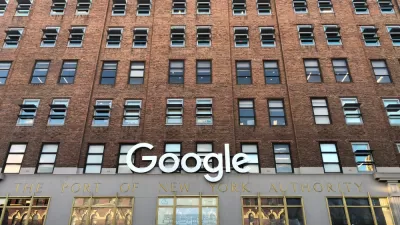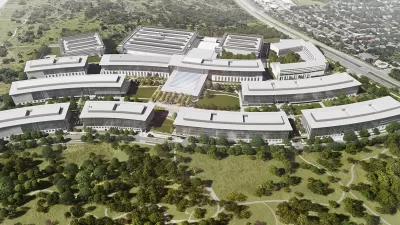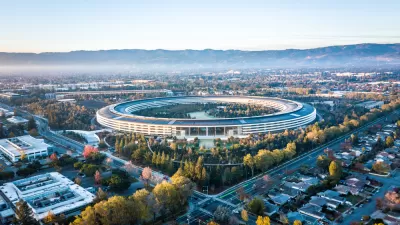The increasing ubiquity of screens in our daily lives and architecture changes the way we experience the built environment, argues Christopher Hawthorne.
iPads, digital billboards, TV on public transportation- these are just a few of the screens competing for our attention in public.
Hawthorne writes, "The appearance of all these screens is not some harbinger of cultural decline. It doesn't signal the end of architecture or even, necessarily, a cheapening of it. What it does mean is that more and more we find ourselves estranged from the physical, bricks-and-mortar life of buildings -- and that we look at the cityscape not just with divided but with fully fractured attention. Even a pedigreed piece of architecture by a famous designer is no longer simply an object that we confront directly or consider whole: It is often something either hidden behind digital walls or half-glimpsed in the background as we direct our main attention to the flickering object in our hands or laps."
Thanks to Samps
FULL STORY: Digital video runs a screen on the cityscape

Maui's Vacation Rental Debate Turns Ugly
Verbal attacks, misinformation campaigns and fistfights plague a high-stakes debate to convert thousands of vacation rentals into long-term housing.

Planetizen Federal Action Tracker
A weekly monitor of how Trump’s orders and actions are impacting planners and planning in America.

In Urban Planning, AI Prompting Could be the New Design Thinking
Creativity has long been key to great urban design. What if we see AI as our new creative partner?

King County Supportive Housing Program Offers Hope for Unhoused Residents
The county is taking a ‘Housing First’ approach that prioritizes getting people into housing, then offering wraparound supportive services.

Researchers Use AI to Get Clearer Picture of US Housing
Analysts are using artificial intelligence to supercharge their research by allowing them to comb through data faster. Though these AI tools can be error prone, they save time and housing researchers are optimistic about the future.

Making Shared Micromobility More Inclusive
Cities and shared mobility system operators can do more to include people with disabilities in planning and operations, per a new report.
Urban Design for Planners 1: Software Tools
This six-course series explores essential urban design concepts using open source software and equips planners with the tools they need to participate fully in the urban design process.
Planning for Universal Design
Learn the tools for implementing Universal Design in planning regulations.
planning NEXT
Appalachian Highlands Housing Partners
Mpact (founded as Rail~Volution)
City of Camden Redevelopment Agency
City of Astoria
City of Portland
City of Laramie





























